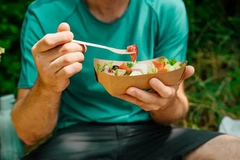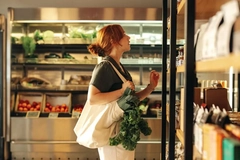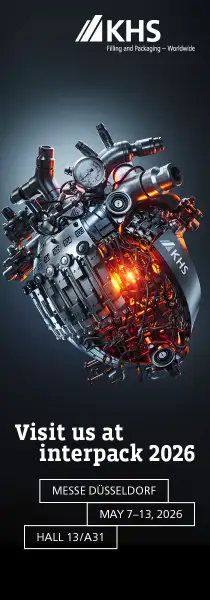Taki2Go founder presents smart sanitization for reusable foodservice packaging
Taki2Go has designed a food container system that can eliminate disposable, single-use packaging by using on-site, plug-and-play sanitization. According to Taki2Go’s founder, Ravyn Williams, the system removes expensive reverse logistics, making real-time reuse possible directly where meals are served.
Packaging Insights speaks to Williams, a cardiac electrophysiology physician assistant and eco-innovator based in Los Angeles, US, about what makes Taki2Go a scalable solution for the foodservice industry.
She tells us how Taki2Go aims to tackle single-use packaging in hospitals, schools, and businesses, among other venues where environmental toxins can directly impact public health.
What makes Taki2Go scalable?
Williams: At its core, Taki2Go is built for scale. Not as an afterthought, but as a starting point. Our system is modular and designed to integrate with a variety of institutional models. From fast-casual restaurants to corporate campuses in public schools.
We’re currently working with several enterprise-level partners to pilot our system and are building a digital back end that allows real-time tracking of impact. We are prelaunching and have reverse-engineered our roadmap based on infrastructure and human realities, not hypotheticals. This makes us extremely nimble and future-ready.
How does your system compare to conventional single-use packaging?
Williams: Reusable systems often face the misconception that they’re more expensive. The truth is, once our system is at scale, Taki2Go is projected to reduce total packaging costs by up to 30% over time, when compared to single use. While the initial investment may be higher, the break-even point occurs quickly, especially for high-volume locations.
We’re finalizing detailed per-meal cost modeling in collaboration with institutions who are eager to reduce not just financial costs, but ESG liabilities. In other words, this isn’t just about dollars. It’s about allowing these companies to finally reach their ambitious sustainability goals.
What infrastructure is required on-site to support your system?
 Taki2Go aims to tackle single-use packaging in hospitals, schools, and businesses.Williams: We’ve designed Taki2Go to be as plug-and-play as possible. Our system can be integrated in almost every setting with minor modifications for the institution because of our flexibility.
Taki2Go aims to tackle single-use packaging in hospitals, schools, and businesses.Williams: We’ve designed Taki2Go to be as plug-and-play as possible. Our system can be integrated in almost every setting with minor modifications for the institution because of our flexibility.
How can you ensure sanitation standards are met in locations with strict public health regulations?
Williams: As a licensed cardiovascular provider, I come from a background where sanitation isn’t negotiable. It’s life or death. Our mindset drives everything we do. Our protocol mirrors medical sterilization logic: time, temperature, and tracking. We are currently finalizing lab-validated testing with third-party labs to ensure Taki2Go exceeds FDA food contact safety requirements and the most stringent institutional regulations. Our vision isn’t just “reuse.” It’s trust, at scale.
How do you handle the labor of collection, washing, and redistribution? Is it sustainable in the long term?
Williams: This is my favorite question because it addresses why most reuse systems fail and where we disrupt the space. We are not a deposit return system or centralized collection model. We’ve built a smart, on-site sanitization station that eliminates the need for complex reverse logistics altogether.
There’s no hauling containers back and forth, no offsite labor for washing or redistribution. Our model is built for real-time reuse right where the meal is served. Whether that’s a school, hospital, restaurant, or a corporate campus. This not only makes the system dramatically more scalable, it removes a major cost barrier and carbon footprint that plagues almost every other existing reuse model. With our system, businesses don’t have to rethink their entire supply chain.
How far along are you in launching Taki2Go?
Williams: We are in prelaunch discussions with several Fortune 500 companies, food chains, a major hospital system, and the second-largest school district in the US. These groups recognize that compliance with new waste reduction laws like SB 1383 and EPR laws like SB54 will require solutions that are not only innovative but also legally defensible. We will be making several announcements about these relationships soon, but our inbox is already full. The market is demanding leadership, and Taki2Go is ready for the role.












